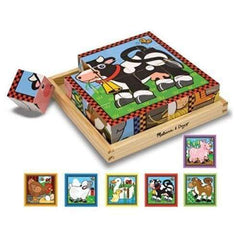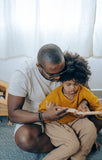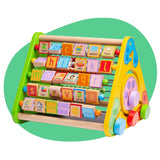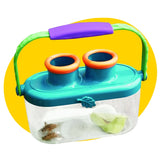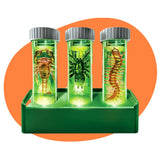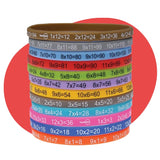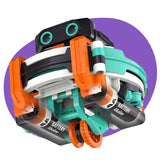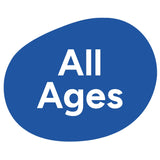Wooden puzzles come in all shapes and sizes, suitable for nearly everyone! A puzzle is a game or toy in which you have to fit separate pieces together correctly. It is designed with an objective, an end goal for the puzzler to achieve – whether this is a lovely picture of a farmyard or a complex 3D tower which slides in many directions. Get the choice of puzzle right for your youngster and you open up a whole world of benefits (my favourite being development of the concentration skill!)
Wooden puzzles have an advantage over their cardboard or plastic fellows, I believe, as they are so wonderfully durable whilst still be environmentally friendly, most being made from sustainably sourced, certified wood. Those aimed at younger children do need to stand the extreme handling and chewing that can happen! A well-made
wooden toy can last through generations – I am a big fan!
Due to the precise nature of moving pieces exactly into the correct place, puzzles help develop hand-eye co-ordination and fine motor skills. It takes time for children to develop smooth fine movements as the muscles in young hands need lots of practice holding and moving small objects accurately. Working on slotting those pieces together or into the right space really helps with this. This utterly gorgeous
three layer puzzle from
Djeco is perfect for encouraging those gripping, pincer movements. And what a good opportunity for some storytelling! What names could those cute little animals have? What tales can be told about their life in their colourful tree house?
Problem solving plays a large part in completing puzzles, cognitive skills are developed as children start to organise their ideas and apply knowledge through choice and evaluation. They will find that their time improves with each puzzle as they start to think more logically and develop tactics. When children play with puzzles, they learn the power of choice and strategy. Critical thinking, judgement, visual-perceptual skills and memory are all tested with a puzzle.
This
cube puzzle from Melissa & Doug is a brilliant example of a skills progression puzzle as youngsters grow from simply slotting cubes into the tray to recognising and predicting pictures and choosing where the cubes need to go. Also – six puzzles in one!
Using puzzles to educate is not a new concept however it is a good one! I remember having a wooden ‘
see and spell’ set at school back in the 1970s where we were encouraged to find the correct letters for the picture, learn the word then go and write the word on the blackboard in our own time. As a kinaesthetic learner, I would run my fingers across the letter shaped holes to memorise the shapes which helped me. I still now, if working out a spelling, tend to shape it out! A timeless educational puzzle!
There is something very satisfying about completing a puzzle and for children this can be an enormous boost to their self-esteem. Working independently on a puzzle can improve their sense of self-worth. Two children working together on a puzzle have a chance to practise their social skills, from resolving an argument to asking for help with a piece. As a parent we can model good social skills using courtesy words to ask for a piece or to suggest a strategy. We can turn take and praise concentration, persistence, and achievements!
by Allie White, educational consultant to BrightMinds
As a parent and former-teacher, Allie has a hands-on approach to home learning, believing that the best learning is done together in a relaxed environment.
Our mission at BrightMinds is to foster “a brighter way to play” to inspire your child to be curious about the world around them & encourage creativity in a fun & relaxed way.
We curate a world-class range of educational toys, games, gifts & books which are good quality, safe and backed by our extraordinary customer service. Wooden puzzles are our speciality and a wooden puzzle from BrightMinds is a wonderful gift for your special girl or boy.
Backed by our 90 day guarantee we are the number one site for thoughtful toys for kids!


